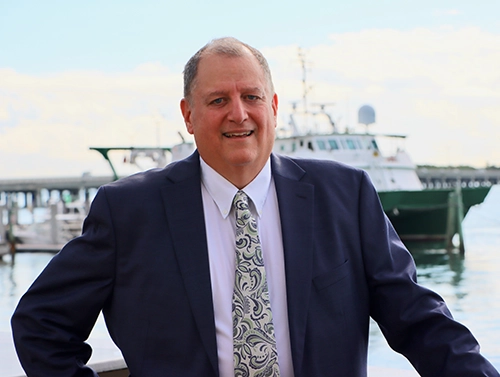
Welcome
Since joining the University of Miami in 2007 as a professor of atmospheric sciences, I have had the privilege of watching the Rosenstiel School of Marine, Atmospheric, and Earth Science evolve into one of the world’s leading institutions for marine, atmospheric, and earth science research and education. Over the past two decades, my leadership roles with the NOAA Cooperative Institute for Marine and Atmospheric Studies and the University’s Frost Institute for Data Science and Computing have prepared me to now take the helm as dean. It is an honor to lead this school into its next chapter of impact, discovery, and growth.
At the Rosenstiel School, our mission is both global and deeply local. Miami is ground zero for many of the climate processes that shape our planet, and a living laboratory for adaptation strategies. We are uniquely positioned and equipped to confront some of the most pressing challenges facing society—from rising seas to hurricanes, from ocean health to the sustainability of vital ecosystems. Our research is cutting-edge, authentic, and relevant to people’s lives. We seek solutions that not only serve our region but can also be exported and applied where they are most needed across the globe.
Central to our mission is enhancing experiential learning for our students. We want every student, whether in our undergraduate or graduate programs, to have the opportunity to engage directly in research early in their academic journey. By working alongside our renowned scientists, students gain firsthand experience in addressing real-world problems. We amplify these opportunities through semesters abroad in places like the Galápagos Islands and Bimini, The Bahamas, research cruises, field campaigns, and through a strong network of internships that bridge the classroom and the professional world.
Our value proposition is clear: we prepare the next generation of scientists and practitioners not only with knowledge but with the skills and perspectives that come from doing science in the field, in the lab, and in the community. We are also committed to deepening our collaborations—with businesses and the private sector, as well as with other schools and colleges at the University of Miami. Partnering with experts in medicine, architecture, engineering, and beyond allows us to bring a breadth of perspectives to the table, ensuring that the challenges we tackle are informed by multi-disciplinary expertise and that the solutions we develop are both innovative and practical.
Philanthropic support is vital to this mission. It allows us to recruit and support the most talented students—bright, passionate individuals who might not otherwise have the means to pursue their studies in marine, atmospheric, and earth science. When we invest in these students, we are investing in the future: in the discoveries they will make, the solutions they will develop, and the communities they will serve.
I view this as one of the noblest missions anyone could be a part of: advancing understanding of the earth system, addressing global and local challenges, and equipping future leaders to carry this work forward. At the Rosenstiel School, we stand ready to meet this responsibility. Join us.
-Ben Kirtman
Dean, Rosenstiel School of Marine, Atmospheric, and Earth Science




